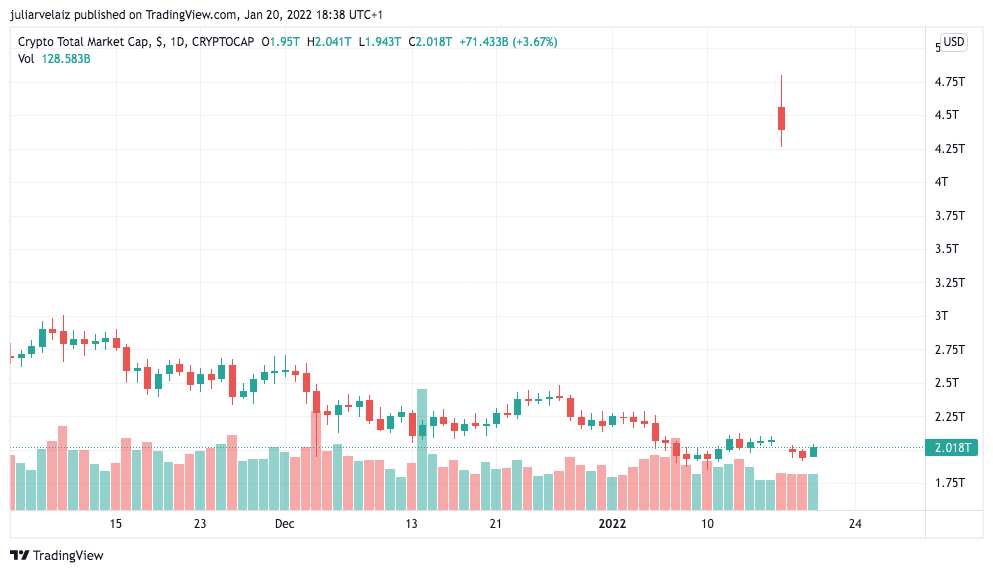Soon, Facebook and Instagram could let you use NFTs as a profile picture, and Meta is likely to build a non-fungible tokens marketplace where users can create and trade the collectible tokens. This could catapult the already booming industry into the mainstream, but it could also mean huge risks as the conglomerate gains more power and aims to clean its name by rebranding and launching popular products.
The Vision
As the tech giants are racing to “support” the industry that promises billions in profit, The Financial Times reported that the company Meta, formerly known as Facebook, is discussing the possibility of building an NFT marketplace and looking into a prototype that would allow users to mint and sell non-fungible tokens.
Reportedly, the teams at Facebook and Instagram are also “readying a feature” that could be used to display NFTs as the social medias’ profile pictures. This would likely provide a new differentiation between displaying the original NFTs and a JPG, thus enhancing the NFT holders’ fondness of bragging about ownership.
The firms have been interested in NFTs for a while now. Last year, Instagram’s CEO Adam Mosseri stated that the company was “actively exploring NFTs and how we can make them more accessible to a wider audience.”
The FT added that “the efforts are at an early stage and could yet change”. But the NFT platform OpenSea just surpassed the $3.5 billion mark of its monthly Ether trade volume for the first time ever, breaking over $169 million in trading volume for each day, so competitors are not going to look away and it makes a lot of sense for Meta to cash in.
However, Facebook has been widely accused of putting profit before people, endangering users’ security, and being dangerously influential, especially to the younger generations. Scandals have led the company to lose popularity over the years, but users could always come back to join a new craze.
These new efforts from Meta are believed to be the largest mainstream support for the NFT industry yet, but at what cost?
Is Meta supporting NFTs or are will NFTs support the firm’s shady goals?
Related Reading | Retail Giant Walmart Ventures Into The Metaverse With Its Own Crypto And NFTs
Novi Traces A Zigzag
Novi is Meta’s digital currency wallet. The FT’s sources claimed it would be “vital to the plans” since “A lot of the supporting functionality relating to Novi will be powering the NFTs.”
The wallet was launched in October 2021 as an extension of the Diem Stablecoin Project (formerly known as Libra). It immediately raised concerns because of the risks that Meta products display.
The U.S. Senators Brian Schatz (D-Hawaii), Sherrod Brown (D-Ohio), Richard Blumenthal (D-Conn.), Elizabeth Warren (D-Mass.), and Tina Smith (D-Minn.) do not trust Facebook to protect user data or be in charge of payments platform.
They immediately pushed back on the launch. ”We urge you to immediately discontinue your Novi pilot and to commit that you will not bring Diem to market,” they said in an open letter directed to the CEO Mark Zuckerberg.
The letter added: “In addition to the risks products like Diem pose to financial stability, you have not offered a satisfactory explanation for how Diem will prevent illicit financial flows and other criminal activity.”
In response, the stablecoin project Diem told the regulators that “Diem is not Facebook. We are an independent organization, and Facebook’s Novi is just one of more than two dozen members of the Diem Association. Novi’s pilot with Paxos is unrelated to Diem.”
Everything indicates that Facebook is moving forward with both projects: the Novi wallet and Diem. But the concerns the firm imposes have not gone away.
As they rebrand, launch new products, rebrand again, and play with the idea of the Metaverse and crypto and NFTs, their plan of driving the focus away from the risk of giving the conglomerate so much power over people’s lives could be working.
“Facebook is a family of apps,” said Mark Zuckerberg back in 2015. And what a toxic family it became.
Related Reading | Facebook Evolves Into The Metaverse, A Centralized and Dystopian Virtual Reality












